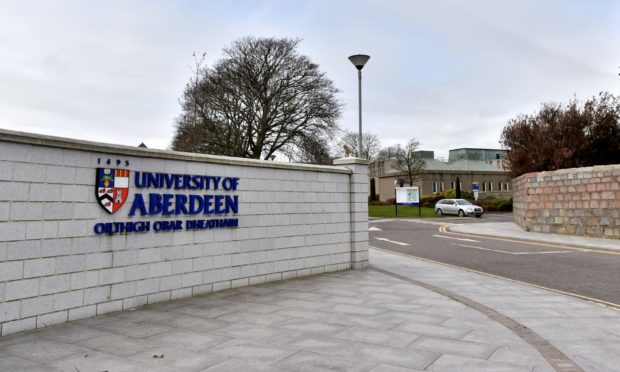Researchers at Aberdeen University have developed a Covid-19 antibody test which they say is superior to those currently available.
Scientists at the university collaborated with NHS Grampian and the firm Vertebrate Antibodies Ltd to develop the prototype.
They describe the new test as “highly accurate, affordable, suitable for mass rollout” – while it also does not require specialised laboratories.
Covid-19 antibody – sometimes called serology – tests confirm whether a person has previously had coronavirus.
They can be used to manage the pandemic by monitoring how many people have had the virus and how it is spreading.
The tests can also be used to monitor the effectiveness of vaccines, population immunity and the impact of new strains of the disease.
However, some existing antibody tests are unsuited to rapid mass deployment as they can be inaccurate and also detect other coronaviruses such as the common cold.
But the new test – which was developed with funding from the Chief Scientists’ Office rapid research programme – has shown high levels of accuracy in small-scale trials so far.
The next step is to test it on a larger number of people.
Using artificial intelligence, the team identified specific parts of the virus – known as “hot spots” – which trigger the body’s immune defence. They were then able to invent a new way to include them as they would appear in the body to improve the test’s performance.
If it is approved, the researchers say the test could be used for mass screening of NHS staff and key workers, as well as identifying high-risk patients or carriers of the virus.
They believe it could also provide data on the prevalence of emerging mutant strains, as well as herd immunity.
In addition, it could provide crucial information on the efficiency of the vaccination programme, including showing how long protection lasts and differentiating between protection resulting from the vaccine or from natural infection.
Professor Mirela Delibegovic, who led the team, said: “Antibody tests are essential for monitoring how widespread Covid-19 is, to give an idea of any potential herd immunity and to judge how effective the vaccines are.
Professor Mirela Delibegovic, who led the study.
“Existing tests have been known to give a relatively high rate of false positives and negatives probably due to cross-reactivity with other coronaviruses, and so it is clear that a better test was required.
“Our prototype test has been designed in line with the gold standard requirements for such tests and in our smaller scale trial has proven more accurate while giving more useful information than existing tests. The next step is to attempt a wider-scale trial to test its suitability for use on a much bigger scale.
“This project has been completed in an incredibly short timescale thanks to the funding from the CSO and of course the fantastic collaboration between the University of Aberdeen, Vertebrate Antibodies Ltd and NHS-Grampian.”
